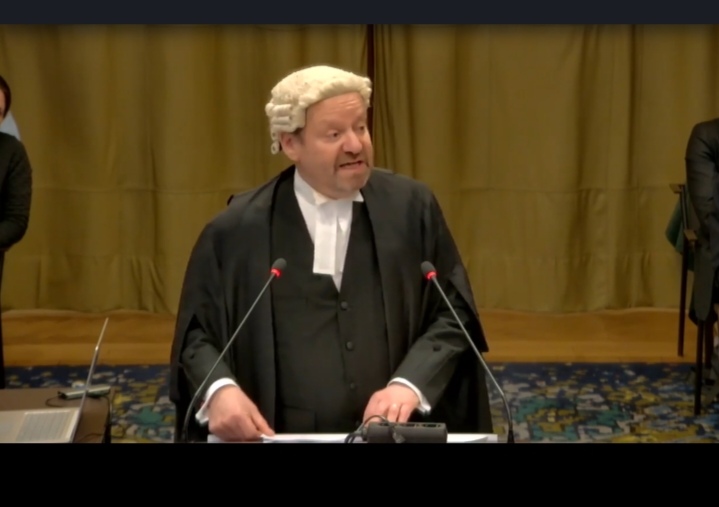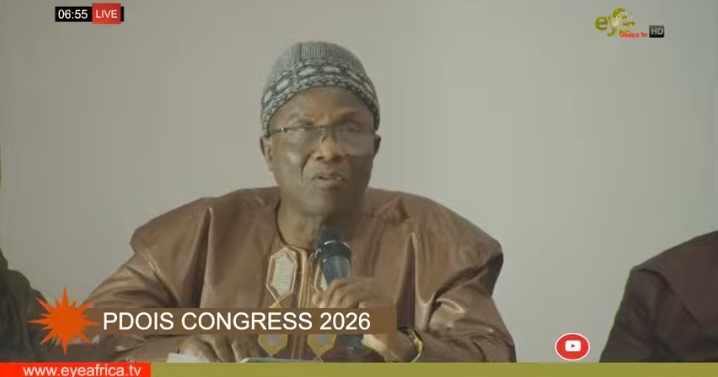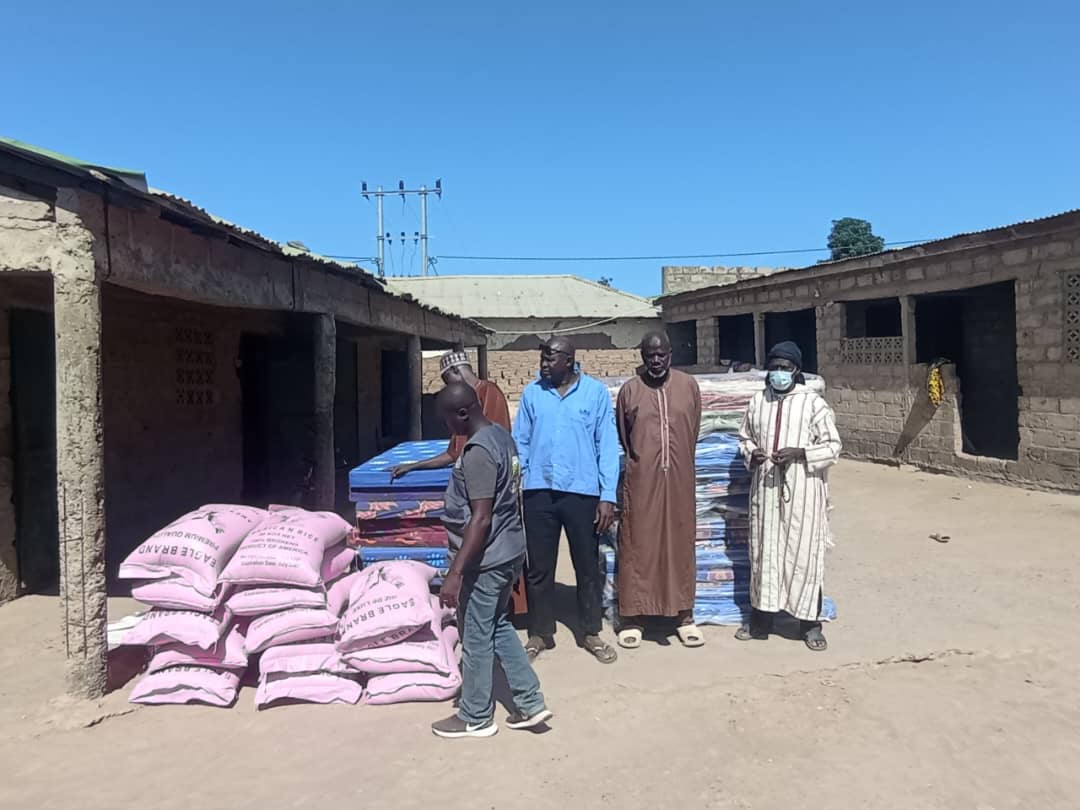 |
By D. A. Jawo
As we approach the last lap of the campaign for the December 4th presidential elections, it may not be out of place to make a few observations regarding the entire process; from the nominations to the official campaign period.
Of course, unlike what used to happen during the Babili Mansa regime, and even during the first republic, there has been some noticeable democratic transformation in this country. However, the credit for that transformation goes to the ordinary Gambians instead of President Adama Barrow, as he and some of his supporters would claim.
Indeed, the democratic dispensation that we all had yearned for could only go as far because it can only succeed if it has the proper legal and legislative instruments to back it. Unfortunately, however, the transition government of President Barrow did not show enough commitment to carry out the necessary reforms to give it the flesh that it needed to triumph. We have seen, for instance, how the Draft 2020 Constitution was thrown away, no doubt at the instigation of President Barrow and his administration, apparently because some of its clauses did not favour him. We have also seen the failure to carry out the necessary electoral reforms that the late Solo Sandeng and some members of his group had fought and died for. Apart from a few cosmetic changes, we are still left with the Yahya Jammeh Constitution and Elections Act, and several other pieces of legislation, all of which were designed to entrench an autocratic regime.
While the Independent Electoral Commission (IEC) can claim to have been constrained by the failure to enact the new constitution in order to carry out some important electoral reforms, but certainly, part of the blame for failure to carry out some of those reforms rests squarely on their shoulders. For instance, one of the reforms that they could have initiated from the onset was the constituency boundary demarcation. There is absolutely no justification in continuing to have constituencies with such demographic disparities. For instance, while some constituencies have a voter population of more than 50, 000, a constituency like Janjanbureh, for instance, has less than 2000 registered voters, and yet they are all supposed to elect one representative to the National Assembly. There is absolutely no justification in allowing such demographic disparity to continue in a modern democracy.
Another area that the IEC could have tackled from the very beginning of the transition was to ensure that the Gambian diaspora were enfranchised to vote, just like several other countries in the sub-region. However, it appears that there was no political will on the part of both the government and the IEC to see that happen.
Also, while the IEC Chairman Alieu Momar Njai had emphasised his support for transiting from the archaic marble to a paper ballot system of voting, but it appears that the commitment to see it happen was a bit laxed. We are all therefore watching to see how the IEC is going to deal with the logistical nightmare of catering for this complicated ballot system with at least six presidential candidates. While with the paper ballot system, the IEC would have needed only one transparent ballot box for all the candidates per polling booth, placed in the open for everyone to see; in the case of the marble system, each candidate would need an iron drum hidden away in a little enclosure for voters to go in and cast their ballots.
For the first time in the history of this country, we have seen more than 20 people coming forward and wanting to contest for the presidency. Of course, while it is a sign of our democratic maturity, but it is also an indication of the apparent low esteem that many people now seem to hold the office of the president. “If someone like Adama Barrow can just come from nowhere and get elected president, then anyone else can try their chance, because the value of that office has become quite low,” remarked a political analyst.
However, the decision of the government to reduce the deposit for a presidential candidate from D50, 000 to a mere D10, 000 did not help the situation. If the aspirants had risked losing D50,000, then they would think twice before entering a race they knew they had absolutely no chance of winning. Therefore, it is necessary for the IEC to recommend an upward revision of the amounts of deposit for all the elections.
Indeed, even the very fact that most of those aspirants who failed to meet the threshold had to rush to join the President Barrow camp, apparently convinced that he is going to win and then they would stand a chance of getting some crumps from the victory, indicates some lack of commitment to contest in the first place. It is quite obvious that a majority of them just wanted to use the opportunity to advertise themselves, hoping to get something from the eventual winner at the end of the day. It would be quite interesting however to see, in case he wins the elections, how President Barrow is going to cater for all that very long queue behind him, all of them looking forward to being rewarded with jobs or other lucrative “prizes” for their “loyalty” to him.
Another area that the IEC needs to address is the lack of seriousness given to the assets declarations by aspirants. It is certainly not given the seriousness that it deserves and as such, some of them would just indicate whatever they wanted to show as their assets, knowing fully well that there would not be any verification done. Even the time factor is just too short for anyone to do any serious verification.
While the campaign had been going on smoothly, but there are a few dark spots that seem to stand out. One of them being the Babili Mansa factor. Of course, while he has absolutely no more relevance in Gambian politics, but the very fact that he had been calling to make some incendiary remarks should be a cause for concern. However, while people have a good reason for criticising the leader of the Gambia Democratic Congress (GDC), Mamma Kandeh for continuing to give Babili Mansa the platform to make such incoherent remarks, but it was President Adama Barrow who opened the way for Babili Mansa to get involved in the political arena by cozying up to him. The very fact that he not only entered into an alliance with the APRC whose executive were hero-worshiping Babili Mansa, but he even made a courtesy call on his family home in Kanilai. Therefore, he has no moral authority to threaten Mamma Kandeh with dire consequences for allowing Babili Mansa on his platform when he was the very first to attempt to engage him. It sounds like saying that the grapes are sour just because he was unable to get them when he tried. Let us however hope that he would not risk disrupting the elections by trying to get Mamma Kandeh arrested for doing exactly what he (Barrow) had unsuccessfully attempted to do. It is even hard to see what law President Barrow would rely on to stop former President Jammeh from speaking to anyone in this country.
In fact, President Barrow has told us that since 2017, he had been negotiating for an alliance with the APRC, and he knew from the very beginning that everything the APRC executive were doing was for the interest of their Supreme Leader. In fact, it has now become quite clear that the decision of the APRC National Assembly members to vote against the 2020 Draft Constitution may not have been a convergence of interests, as we all thought at the time, but it could have been part of a well calculated agreement the APRC executive had reached with President Barrow.
There is absolutely no doubt that important issues are being raised during the campaign by all the candidates, but it is hard to see why President Barrow would continuously make references to the UDP leader Ousainou Darboe in all his campaign speeches as if he has no other more relevant issues to talk about. However, we also expected Mr. Darboe to be more measured in his response rather than making threats against President Barrow. This is definitely not the type of language we expect from our leaders.
It is however not surprising that President Barrow is making maximum use of the incumbency factor to his advantage, campaigning with projects paid from state resources as if the money was from his own pocket. We have also heard him emphasising his proposed salaries for alkalolu, not however explaining how he can make that happen. It is certainly not as simple as just putting up a budget line in the annual budget estimate and make it happen. It definitely has to get some legislative backing before the alkalolu can be paid from the Consolidated Fund. Of course, an alkalo is not a position created under the civil service structure and as such, it is hard to see how he can just create a salary for them without going through the National Assembly. Probably it is just what one opposition sympathiser said; “all that President Barrow wants is to win the elections at whatever cost and he does not care what happens afterwards.” What would happen if an alkalo is already an employee of the government or another agency and receiving his/her monthly salary (as it is the case with some); would he/she be paid another salary?
The role of the media in any elections is quite crucial, and therefore, we expect the media, both public and private, to give equal opportunities to all the candidates. However, while one cannot blame the GRTS for their scanty coverage of UDP activities as it is alleged that it is the UDP that has decided to boycott them, which is certainly not a wise decision, but what we are seeing in some of the private TV stations is quite disturbing. For instance, QTV, for whatever reason, seem to concentrate on showing President Barrow’s campaign images and hardly the other candidates. One would therefore wonder what has happened to the IEC media campaign ethics, which were supposed to regulate the media and ensure fairness.
About the Author
D.A Jawo is a veteran Gambian journalist and former Minister of Information.
Twitter handle: @dembajawo
Publisher’s Note
Views expressed herein are those of the author and do not necessarily represent the views of the publisher. Want to be a contributing author? Please email opmail220@gmail.com





